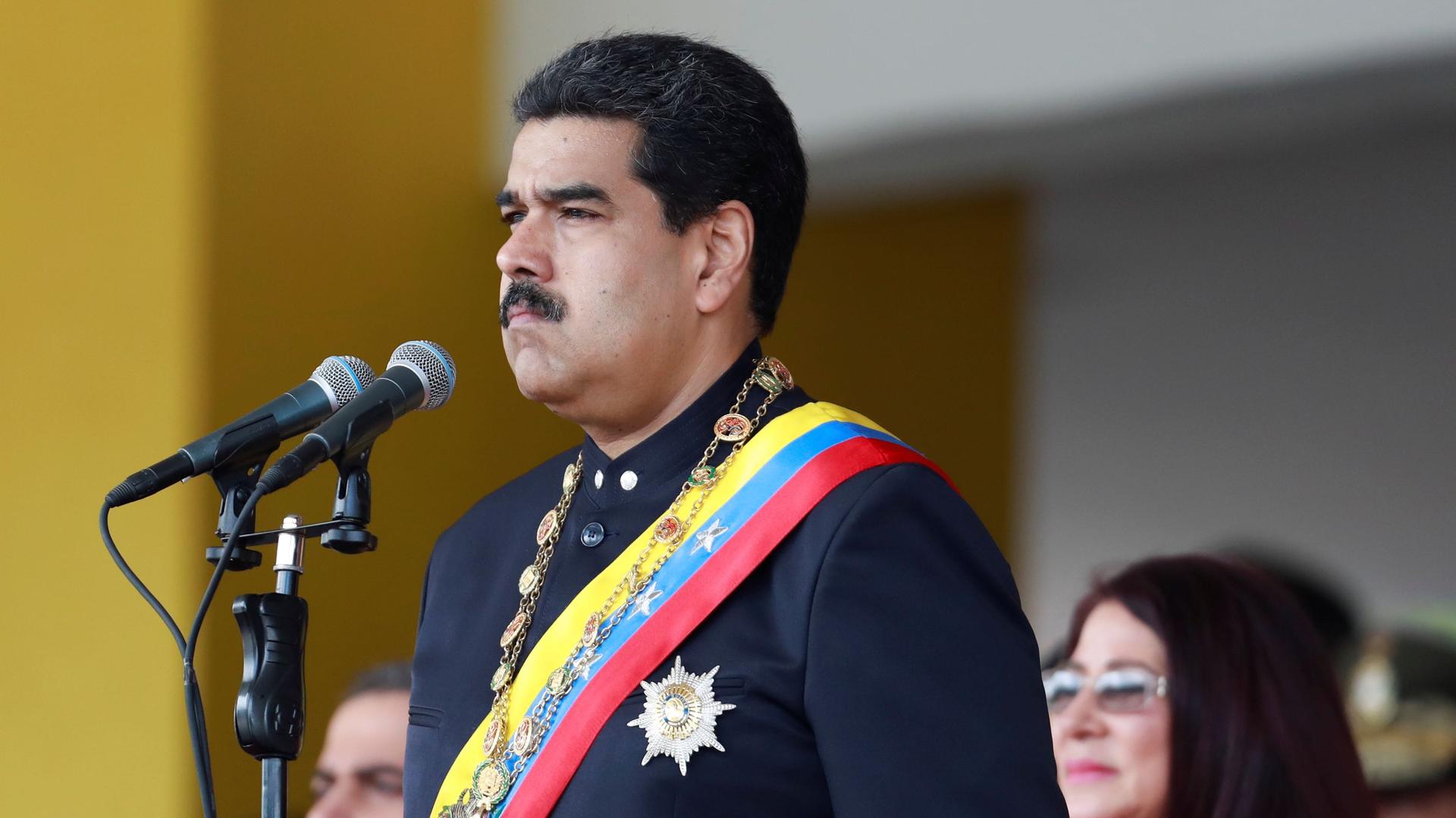Venezuelans turn up for symbolic vote to show their ‘discontent’ with President Maduro’s government
Venezuela's President Nicolas Maduro attends a military parade to celebrate the 206th anniversary of Venezuela's independence in Caracas, Venezuela, July 5, 2017.
Thousands of Venezuelans cast ballots Sunday in a symbolic vote on Sunday seen likely to reject plans by President Nicolas Maduro to rewrite the constitution, upping pressure on the beleaguered leader after months of violent street protests.
The call to polls — described as a "plebiscite" by the opposition, but "illegal" by the government — is over Maduro's intention to have a citizens' body elected to redraft the country's basic law.
To detract from the opposition vote, his government was on Sunday holding a dry-run simulation of that election, which is to be held on July 30.
Several Latin American countries and the Catholic Church have criticized the move to draw up a new constitution, while the opposition has slammed it as bid by Maduro to concentrate dictatorial powers to stay in power.
Many voters, wearing white or the colors of the Venezuelan flag, turned up early to the 14,000 makeshift voting tables set up under tents across the country.
"Liberty!" yelled some.
"We are turning out to show our discontent with the government," said 49-year-old Tibisay Mendez.
"We can't find medicines, every day there is less food in the country. And they [Maduro and his officials] only want to hold on to power. We are voting to get them out," she said.
The electoral struggle is being played out against a backdrop of pro- and anti-Maduro demonstrations — which have left nearly 100 people dead since April 1 — and a near-collapse of the oil-rich nation's economy.
Although the National Electoral Council, which sides with Maduro, has not authorized Sunday's vote, the opposition is expecting a big turnout.
Already early Sunday in Caracas there were lines in parts of the city in front of makeshift polling stations.
'Win back democracy'
Voters are being asked if they reject Maduro's plan to create a "Constituent Assembly" to redo the constitution and if they approve of early elections.
Julio Borges, leader of the opposition-controlled parliament, said the vote "will denote a 'before and after' in this fight to win back democracy for Venezuela."
Both the opposition and the government have dug in on their respective courses, giving no heed to the other side. Attempts at dialogue have failed, and now each is talking to the public at cross-purposes.
Since April 1, when anti-government protests and police crackdowns on them turned violent, 95 people have died.
Discontent has spiraled as the population suffers under a crushing economic crisis, with shortages of food and medicine and triple-digit inflation.
The opposition accuses Maduro of driving the country into bankruptcy, and of using the Constituent Assembly to entirely sideline the parliament.
The president, in turn, says the opposition is collaborating with the "imperialist" United States to undermine the economy and to topple his government.
He has presented his 545-member Constituent Assembly, drawn from various sectors of society, as "the only path" to peace and economic recovery.
Although he is deeply unpopular — the Datanalisis polling firm says 80 percent of Venezuelans reject Maduro as leader — he retains the loyalty of military chief and can count on the support of electoral authorities and judges.
'No one wants him'
But some cracks are appearing in his camp. The starkest was the rebellion of Attorney General Luisa Ortega, who came out against the Constituent Assembly. She holds on to her office, for now, remaining a potent voice of dissent in government.
According to Datanalisis, 70 percent of voters taking part in Sunday's consultation are expected to reject the Constituent Assembly. It estimates that 10.5 million people — a majority of Venezuela's 19 million voters — will participate.
The Catholic Church, the United Nations, the Organization of American States and the governments of several Latin American nations have backed Sunday's vote.
To add legitimacy to the process, the opposition invited in five former Latin American leaders to act as observers.
"Maduro needs to understand that no one wants him. He needs to leave now, that's all," one of them, former Mexican president Vicente Fox, said.
Following the vote, the opposition intends to keep up the pressure by holding further street protests and possibly also a general nationwide strike.
Our coverage reaches millions each week, but only a small fraction of listeners contribute to sustain our program. We still need 224 more people to donate $100 or $10/monthly to unlock our $67,000 match. Will you help us get there today?
